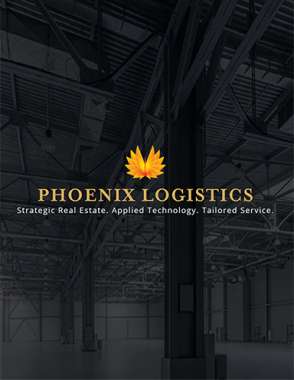Three Challenges to Industrial Real Estate Conversions

With industrial demand soaring and rents still climbing, industry stakeholders have explored numerous ways to create new industrial inventory.
Industrial Real Estate
The industrial real estate crunch shows no signs of relief any time soon, with some experts now saying we can expect low availability through 2023.
With industrial demand soaring and rents still climbing, industry stakeholders have explored numerous ways to create new industrial inventory.
One way involves converting underutilized commercial real estate properties from other verticals for industrial use.
With no shortage of unused office or retail space on the market, desperate industrial tenants may wonder why those properties can’t be used as warehouses or factories.
Though industrial conversions may seem like a simple answer to the industrial real estate shortage, these projects must overcome some unique hurdles.
We’ll explore some of the challenges of industrial real estate conversions below.
1. Zoning Out
Zoning requirements usually stand as one of the largest obstacles to industrial conversion projects. Big box stores, shopping malls, or large office space properties require commercial zoning that encompasses typical business use and traffic. However, there are multiple reasons why many cities and towns have separate designated industrial areas.
Industrial zones stand out for their higher noise concessions, larger lot sizes, deeper setbacks, and allowances for heavier traffic. As a result, convincing a city council or zoning board to rezone a retail or office space for industrial use may prove difficult, especially if the area is close to schools or residential areas.
2. Wrong Neighborhood
What works for a shopping mall or office building in terms of site selection may not work well for an industrial facility. For example, locating a retail store in a central location within a population center makes good business sense. However, a warehouse needs quick and easy access to the highway network to keep goods flowing as quickly as possible. A long line of semi-trucks in downtown traffic doesn’t present an ideal scenario for anyone involved.
However, accommodations can be made in some scenarios. For example, to operate in a centralized location, a fulfillment center, warehouse, or factory might limit its receiving or shipping hours to off-peak periods to avoid jamming up local roads. In addition, a fulfillment center could convert to electric equipment to keep noise levels and pollution down. Finding the right adjustments may involve extensive discovery with the local government, nearby businesses, and residents.
3. Bad Bones
Commercial buildings aren’t designed with industrial use in mind. By their nature, industrial operations tend to have fairly intense requirements that many commercial structures cannot meet. For example:
- A large industrial lathe can weigh several tons. A single shelf on some warehouse racking systems might hold up to 4,000 pounds. Many commercial buildings simply cannot handle the sheer weight required for industrial use.
- The ceilings of retail or office buildings are often far too low to accommodate warehouse racks or certain industrial equipment.
- A retail store might only have one or two loading docks, whereas a warehouse needs more.
- Load-bearing columns may get in the way of forklifts, robots/cobots, and other equipment.
- The building’s utility setup may not be able to handle the extensive power requirements of automation systems or heavy industrial equipment usage.
What to Look for in a Potential Conversion
Despite the reasons above, converting properties for industrial use has potential. The key to a successful conversion will involve finding the right property.
At a minimum, a good conversion candidate should have the following:
- A large parking lot that trucks can maneuver within
- High ceilings (tall enough for racking)
- A strong foundation that can support heavy industrial equipment
- Convenient access to highways
Barring the above factors, a space with a good location and the right zoning can be torn down and rebuilt to suit industrial use. But, ultimately, you’ll need to work closely with your broker to find a good industrial conversion candidate.
About Phoenix Investors
Founded by Frank P. Crivello in 1994, Phoenix Investors and its affiliates (collectively “Phoenix”) are a leader in the acquisition, development, renovation, and repositioning of industrial facilities throughout the United States. Utilizing a disciplined investment approach and successful partnerships with institutional capital sources, corporations, and public stakeholders, Phoenix has developed a proven track record of generating superior risk-adjusted returns, while providing cost-efficient lease rates for its growing portfolio of national tenants. Its efforts inspire and drive the transformation and reinvigoration of the economic engines in the communities it serves. Phoenix continues to be defined by thoughtful relationships, sophisticated investment tools, cost-efficient solutions, and a reputation for success.
Article Topics
Phoenix Logistics News & Resources
4 Best Practices for Online Order Fulfillment In 2023 Is Industrial Real Estate Recession-Proof? 9 Tips for Offsetting Rising Parcel Rates Tips for Retaining Your Peak Season Temp Labor The Great Decoupling and What It Means for Industrial Real Estate How Does the Inflation Reduction Act Impact Industrial Real Estate? Not in My Backyard: Warehouse Edition More Phoenix LogisticsLatest in Warehouse|DC
Week in Review: Baltimore Bridge Price Tag, FTC Fines Williams-Sonoma, and More GXO and Conair Open Maryland’s Largest Distribution Center Robots are Enhancing Human Workers, Not Replacing Them Why Companies are Pushing for a Quieter Warehouse Meet Bluicity: The Startup That’s Predicting and Perfecting the Supply Chain Retailers Take Lead in Big-Box Warehouse Leasing, CBRE Finds Senators Take Aim at Amazon with Warehouse Worker Protection Act More Warehouse|DC













